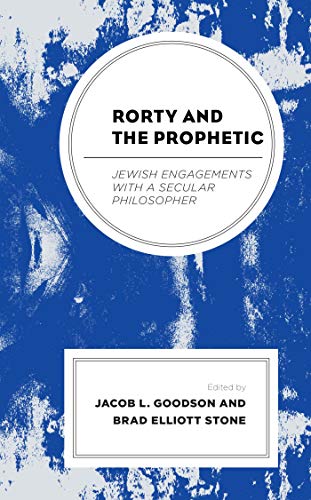Rorty and the Prophetic: Jewish Engagements with a Secular Philosopher
This post was published 2 years ago. Download links are most likely obsolete. If that's the case, try asking the uploader to re-upload.

2021 | ISBN: 1498523005 | English | 247 pages | PDF | 2 MB
The American neo-pragmatist philosopher Richard Rorty dismisses the public applicability of Jewish moral reasoning, because it is based on “the will of God” through divine revelation. As a self-described secular philosopher, it comes as no surprise that Rorty does not find public applicability within a divinely-ordered Jewish ethic. Rorty also rejects the French Jewish philosopher Emmanuel Levinas’s ethics, which is based upon the notion of infinite responsibility to the Face of the Other. In Rorty’s judgment, Levinas’s ethics is “gawky, awkward, and unenlightening.” From a Rortyan perspective, it seems that Jewish ethics simply can’t win: either it is either too dependent on the will of God or over-emphasizes the human Other. This book responds to Rorty’s criticisms of Jewish ethics in three different ways: first, demonstrating agreements between Rorty and Jewish thinkers; second, offering reflective responses to Rorty’s critiques of Judaism on the questions of Messianism, prophecy, and the relationship between politics and theology; third, taking on Rorty’s seemingly unfair judgment that Levinas’s ethics is “gawky, awkward, and unenlightening.” While Rorty does not engage the prophetic tradition of Jewish thought in his essay, “Glorious Hopes, Failed Prophecies,” he dismisses the possibility for prophetic reasoning because of its other-worldliness and its emphasis on predicting the future. Rorty fails to attend to and recognize the complexity of prophetic reasoning, and this book presents the complexity of the prophetic within Judaism. Toward these ends and more, Brad Elliott Stone and Jacob L. Goodson offer this book to scholars who contribute to the Jewish academy, those within American Philosophy, and those who think Richard Rorty’s voice ought to remain in “conversations” about religion and “conversations” among the religious.
Download from free file storage
Resolve the captcha to access the links!
Registered members don't get captcha ... just sayin